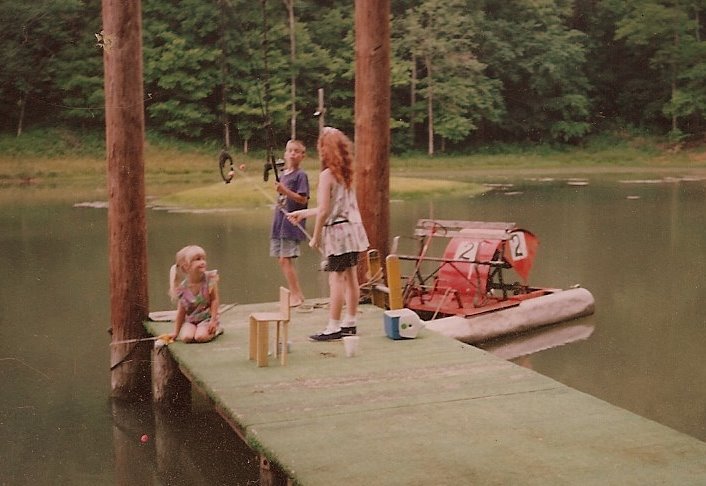
I Grew Up as a Caretaker’s Daughter
On Wednesday, my husband went to the doctor for an X-ray. When the results proved inconclusive, the doctor ordered a CAT scan. We texted back and forth while he waited.
He told me it would be okay, but he had told me it would be okay before his CAT scan in 2014, which revealed a tumor in his brain.
I have learned so much since December 27, 2014. I know how to fight fear with faith; choose life over death; how to take every thought captive, so those thoughts don’t overtake me. And yet, that experience on Wednesday revealed a dark part of my character that needs rooted out.
Truth is, I get angry when my loved ones are weak.
The doctor located my husband’s ailment and put him on antibiotics to clear it up, and though it’s not an intense issue when compared with what we’ve faced, I still found myself highly irritated.
Irrationally irritated.
Chopping vegetables in the kitchen, I told him, “You’d better be proactive about this.”
The day before, I had also gotten onto my mom about an ailment, essentially telling her, “You’d better be proactive about this.”
I tell my loved ones to be proactive because doing something (or telling them to do something) makes me feel like I’m still in control.
But I’m in control of nothing.
The more I unpacked my irrational anger, the more I understood that this anger is only directed toward those who feel like my safe place: my husband, of course, and my parents.
I never get angry when my children are ill. I never get angry when strangers are ill but am filled with compassion, which appears highly hypocritical when compared to how little compassion I show those closest to me.
I talked about this at Life Group, when it was my turn to share about my week. I surprised myself by crying. I was ashamed of my anger, and confused.
I knew it had been irrational to be angry at my husband for becoming ill, but in that moment—in the kitchen, chopping vegetables like they deserved it—I didn’t know how to stop.
My sister-in-law told me that maybe God would reveal where that anger had come in. She offered a suggestion, but I didn’t think that was it.
But, like a game of Hot ‘n’ Cold, I knew we were getting closer.
And then I remembered.
I grew up as a caretaker’s daughter on a Christian camp. For eight years we lived there, which were my most formative years—from six until fourteen. Originally, it was paradise: my older brother and I had 365 acres to explore: one acre for each day of the week.
There were caves, springs, paddle boats, and canoes. We fished, built forts, swam, and mixed berries and leaves into what I believed was Indian stew.
I grew up around a shifting menagerie of musicians, artists, farmers, and preachers. Because of this experience, to this day I am rarely uncomfortable in any group.
Over time, however, the community broke down as differences cropped up. We were asked to leave, but my parents remained. Their volunteer workload increased. My brother and I were told we couldn’t explore beyond our yard. I no longer attended summer camp, watching and hearing children my own age playing games I couldn’t participate in right down the hill from where we lived.
For four years we lived like this. For four years I would have done back-flips if that meant I could have been part of that group.
Eventually, my parents agreed to leave. We lost our house, which my dad had built with his inheritance, because he had built it on someone else’s land.
But the anger didn’t come in then. The anger had come in before.
For six months, my dad had to maintain his income by building storage barns, so we could keep the loan for our new house, which he was building from scratch. At the same time, he had to maintain the camp.
He lost weight. He didn’t sleep. The anxiety surrounding that season took its toll. One night, when I was thirteen, I remember him sobbing on the couch. My mom called a pastor friend of ours, who came over to pray.
It was in that moment, watching my dad, that the anger regarding weakness came in.
I was thirteen at that point, and I believed if I looked a certain way, acted a certain way, said (or didn’t say) certain things, I wouldn’t just be watching and hearing other people enjoying their lives, but I could actually be a part of them.
I wanted my strong dad with the calloused hands to get up from that couch. I wanted him to be proactive.
At thirteen, I didn’t understand the weight of a family. The weight of trying to provide. My dad back then was a little over a decade older than I am now, and now I understand.
He was doing the best he could for us, and yet he was finding his “best” wasn’t enough.
Two weeks ago, my former neighbor contacted me. She asked if I would like to speak at a writer’s group that would be meeting in our old house on that camp. I imagined that moment of sitting at a table in the house my father had built and sharing about the power of story.
Could I go back? Should I?
The summer I was fourteen, I walked almost four miles beneath the hot Tennessee sun and trespassed on the property that had been my childhood stomping grounds. I walked through the open gates, down the long lane, and up the hill toward our house.
The new caretaker was there—an older, affable man, who welcomed me as if I weren’t a stranger. We sat together on the green steps outside that red house, and he gave me the incredible kindness of listening to my story. I asked him if I could look inside.
He said yes, and I spent a few priceless minutes looking at my old bedroom with its candy-cane pink wallpaper, and the window seat my father had built from the same lumber he’d used for his barns. The bathroom’s claw-foot tub my mom had painted blue. The vaulted ceiling with its stained pine beams.
It was home, but it was not. I thanked the man and left. I remember crying a little as I walked up the lane, but I had needed to close that chapter. I had needed to say goodbye.
I don’t believe I will return.
The longer I am alive, the more I understand that we might receive healing from our experiences, but they still shape the topography of our lives.
Because of my experience on the camp, my heart will always yearn for community, even if—at a certain point of intimacy—I must kick against the desire to draw back because I know that community (in all our inherent brokenness) is difficult to maintain.
Because of my experience on the camp, I hide panic by getting angry whenever the safe people in my life exhibit their limits.
But because of my experience on the camp, I never want anyone to feel excluded or lonely.
Because of my experience on the camp, I am comfortable around nearly every group.
Because of my experience on the camp, I have a deep, abiding love for nature.
My experience on the camp shaped who I am, and therefore it was—and is—a gift.
Our life experiences shape who we are, but there are two ways of looking at the result: we can see the ways we are scarred, or we can see the ways in which that pain taught us empathy.
Because empathy is a byproduct of love. In the end, my friends, nothing else remains but love.
How have your life experiences shaped you? Would you go back to some of those places if you could?
Want to receive more posts like this? Subscribe here.




